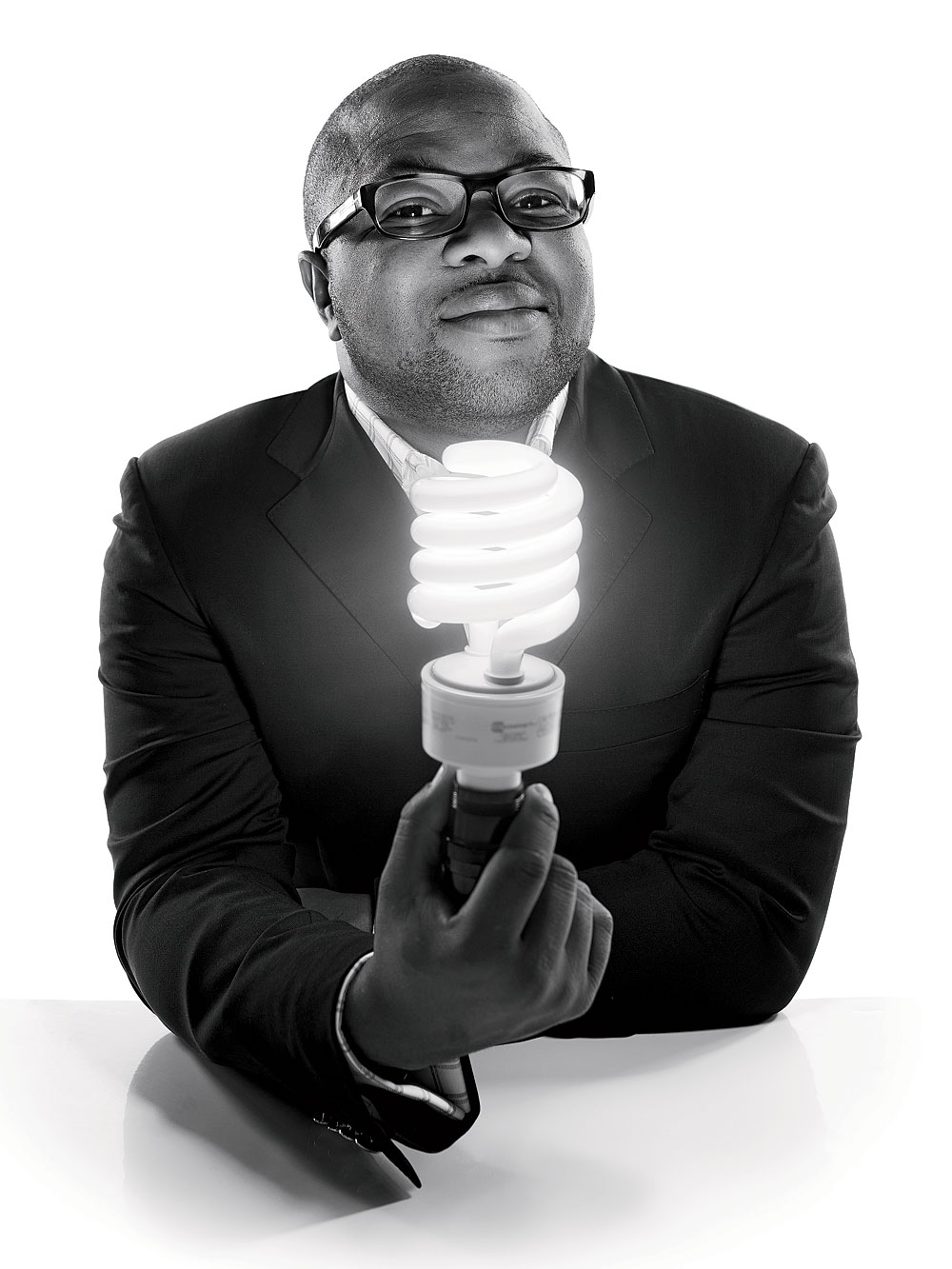In America, you’re an eco-warrior if you ditch grid-supplied energy in favor of a few solar panels on your house. In Nigeria, you’re just being practical. The grid in the West African country is so inconsistent and underpowered that most businesses rely on diesel-powered generators to supply continuous electricity—a solution that’s both costly and unhealthy. Renewable energy is cleaner, more reliable, and less expensive.
That’s the idea behind Beacon Power Services, a four-year-old for-profit Chicago-based company that helps Nigerian businesses harness solar power, reduce their reliance on costly diesel, and upgrade their aging infrastructures. Beacon’s founder is an affable young Kellogg School of Management grad named Bimbola Adisa, who was born in Nigeria and raised in the United Kingdom. In 2008, he was working in Chicago as an investment banker for Deutsche Bank when he received yet another phone call from his Nigerian father complaining about power outages in Lagos. “I’ve always felt a draw to Nigeria,” says Adisa. “Once I realized just how bad the power situation was, I thought [renewable energy] could be the next disruptive technology to really impact Africa.”
He formed Beacon the next year, quitting his day job and booking frequent flights to Lagos. And though Adisa has yet to turn a profit (he declines to disclose revenues), he says business is looking up: Clients now include the Nigerian fast-food chain Kilimanjaro—akin to an African McDonald’s—for which his company is building a commercial solar power plant (part of a larger Clinton Global Initiative project on the continent). Beacon is also cranking out hundreds of portable solar generators for the mobile phone retailer RLG, which is using them to power retail kiosks throughout Africa.
Renewable energy could ultimately transform the continent by taking power beyond cities to rural areas, says Amy Francetic, CEO of the Chicago-based Clean Energy Trust. “Bim is making a market,” she says. “He’s finding early adopters in a place where it makes great business sense. You start there, and then it grows infectiously outward.”



